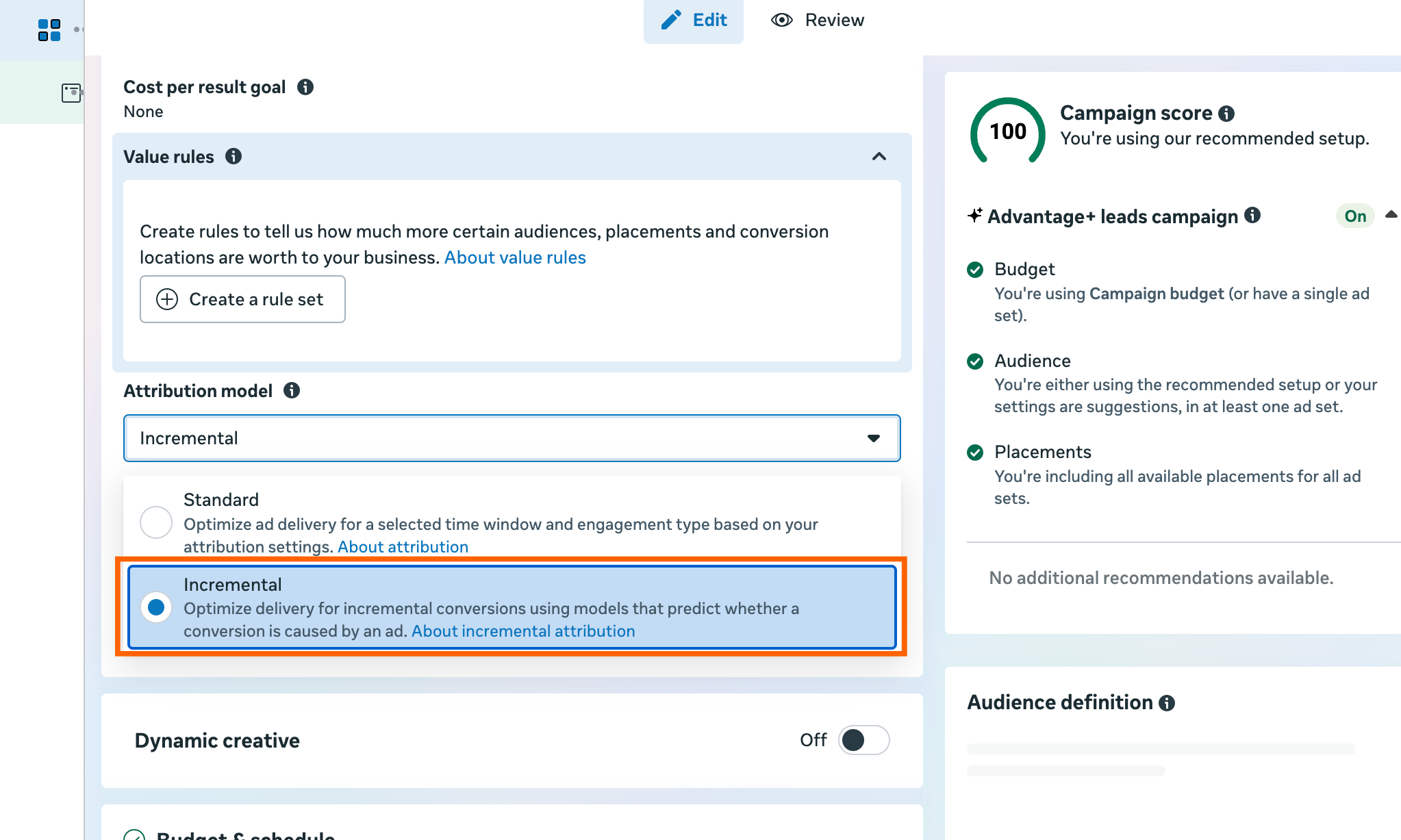Meta Incremental Attribution
Connect Meta Incremental Attribution with AnyTrack to enable Conversion API tracking and campaign reporting. Send server-side conversion data for better ad optimization and accurate attribution.
Meta's incremental attribution model measures the real impact of ads by estimating how many conversions your advertising truly caused, not just credited. It isolates incremental conversions: those that wouldn't occur without ad exposure.
Why This MattersAnyTrack sends all conversions to Facebook Ads (not just interactions with your ads) via the
Conversion API, enabling Meta to apply the Incremental Model.
What Is Incremental Attribution?
Incremental attribution evaluates the additional value your ads deliver beyond organic conversion. It uses advanced machine learning and statistical techniques, including holdout testing and lift studies. Holdout testing deliberately excludes a target audience segment from ad exposure (the "holdout group"), while others see ads (the "test group"). Comparing conversion rates reveals the true incremental lift your ads drive.
How It Differs from Traditional Attribution
Traditional Meta/Facebook attribution is rules-based, assigning credit to ads within a set window (7-day click, 1-day view), even if users would convert anyway. Incremental attribution measures causal impact: conversions that wouldn't occur without ad exposure.
Activating Incremental Attribution
- Activate the model in Facebook Ads Manager via attribution settings (check "Incremental Attribution")
- Compare performance across standard and incremental metrics (
Incremental Conversions,Incremental ROAS,Incremental Purchase Value) - Identify which campaigns truly drive new customer actions, not just credit existing behavior
Meta data shows incremental attribution can reveal over 20% more incremental conversions in some cases.
Why It Matters
Incremental attribution allows marketers to:
- Optimize budget allocation by prioritizing campaigns that drive true growth
- Avoid over-investing in retargeting, which often captures customers who convert naturally
- Future-proof measurement as privacy changes reduce click/view attribution reliability
Enable Incremental Attribution
During campaign creation, open the Attribution Model settings and select Incremental.
****Campaigns with Traffic and Awareness objectives don't have the Incremental Attribution option.

Incremental Attribution FAQ
FAQ was last reviewed on 2026-02-26
Updated 4 days ago
